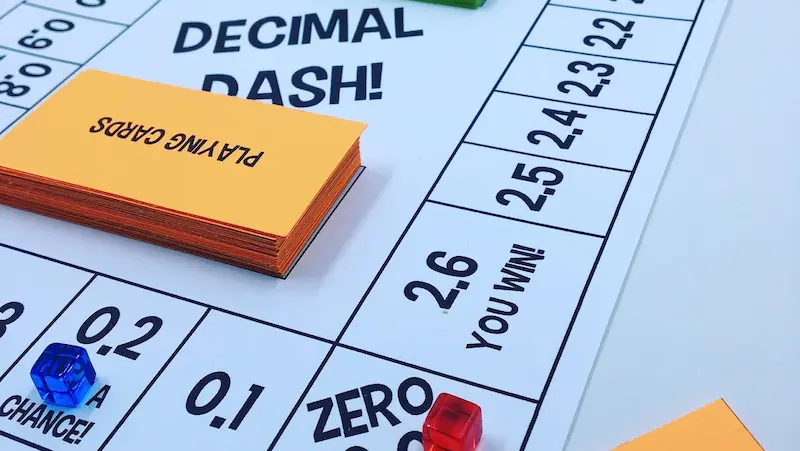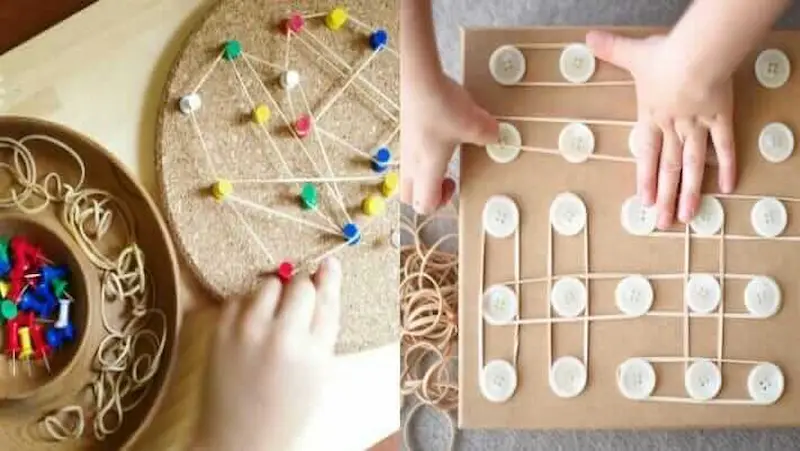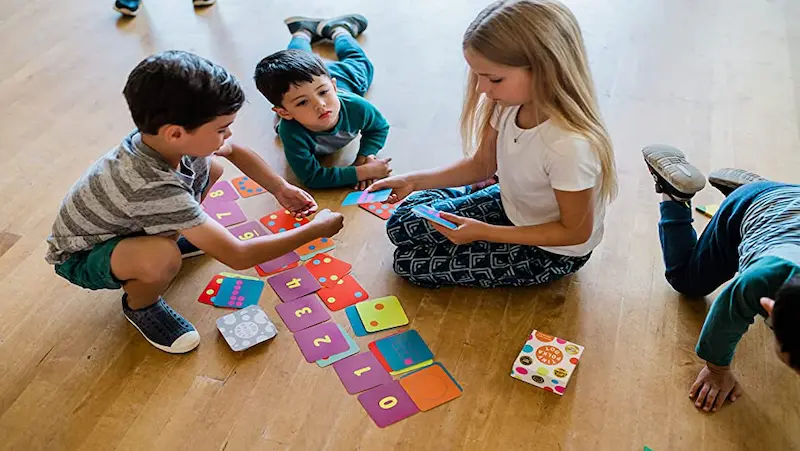Mathematics education is a crucial component of a well-rounded education, as it equips individuals with essential skills and knowledge that extend beyond the classroom. Proficiency in mathematics is not only fundamental for various academic and career paths but also essential for everyday life.
However, engaging young learners and fostering a genuine interest in math can often be challenging. This is where fun math games come into play, offering an innovative and enjoyable approach to learning that captivates children’s attention and encourages them to develop important mathematical skills.
Mathematics, as a discipline, provides a framework for logical reasoning, problem-solving, critical thinking, and quantitative analysis. Proficiency in math empowers individuals to make informed decisions, tackle complex challenges, and navigate the increasingly data-driven world.
From managing personal finances to understanding scientific principles, math underpins various aspects of our lives.

Yet, many children often struggle with math or develop negative attitudes toward the subject. Traditional teaching methods, centered around rote memorization and repetitive exercises, can be dry and fail to spark enthusiasm in young minds.
This is where the integration of fun math games becomes invaluable. By infusing playfulness and interactivity into the learning process, these games have the potential to transform math education, making it enjoyable, accessible, and engaging for children.
Fun math games offer a myriad of benefits beyond simply making math enjoyable. They provide opportunities for active participation, encouraging children to take an active role in their own learning. These games are designed to be interactive, allowing children to explore mathematical concepts through hands-on experiences, collaboration, and problem-solving.
As a result, they not only enhance mathematical understanding but also promote the development of important skills such as critical thinking, creativity, and perseverance.
By incorporating playfulness, interactivity, and problem-solving into the learning process, these games foster the development of essential mathematical skills while cultivating a positive attitude toward math. Elevate learning through engaging educational games for kids, particularly Math Games for Kids, that transform mathematical concepts into interactive adventures, making learning enjoyable and impactful.
In the following sections, we will explore some of the most effective and engaging math games that can captivate children’s attention and nurture their mathematical abilities.
Table of contents
Basic Math Games
Mathematics is a fundamental skill that plays a crucial role in a child’s overall development. By introducing math concepts at an early age, we can help children build a strong foundation for future learning.
One of the most effective ways to engage young kids in math is through games. In this blog post, we will introduce a range of basic math games that can assist young children in developing essential skills like addition, subtraction, and multiplication. These games incorporate numbers, counting, and simple calculations in an interactive and enjoyable manner.

Number Bingo:
Number Bingo is a classic game that reinforces number recognition and counting skills. To play, create Bingo cards with various numbers written on them. Give each child a card and a handful of small tokens, such as buttons or coins.
The game leader calls out numbers randomly, and the children cover the corresponding numbers on their cards with the tokens. The first one to cover a line (horizontally, vertically, or diagonally) shouts “Bingo!” and wins the round.
Counting Caterpillar:
Counting Caterpillar is an interactive game that helps children practice counting and sequencing numbers. Draw a colorful caterpillar on a piece of paper or use a printable template available online. Number each segment of the caterpillar’s body.
Provide children with small objects like beads or buttons and ask them to place the correct number of objects on each segment, starting from the head and moving towards the tail.
Math War:
Math War is an exciting card game that enhances basic arithmetic skills such as addition, subtraction, and multiplication. Divide a deck of cards equally among the players. Each player flips over two cards and performs the designated operation (addition, subtraction, or multiplication) on the numbers.
The player with the highest correct answer wins the round. To make the game more challenging, use multiple operations or introduce larger numbers.
Math Maze:
Math Maze combines problem-solving and math skills in a thrilling game format. Create a maze on a sheet of paper or use a printable maze template. Write math problems (e.g., addition or subtraction equations) at various points in the maze.
Children must solve the problems correctly to find their way through the maze. This game enhances critical thinking, mental calculation, and problem-solving abilities.
Intermediate Math Games
As children grow older and develop a stronger grasp of mathematics, it becomes important to introduce them to more challenging concepts to keep their interest and foster further learning. One effective way to achieve this is through interactive math games that make learning fun and engaging.
In this blog post, we will explore intermediate math games that focus on essential concepts like fractions, decimals, and algebra. These games are designed to provide an enjoyable learning experience while reinforcing critical math skills. Let’s dive in!

Fraction Frenzy:
Fraction Frenzy is an exciting math game that helps kids solidify their understanding of fractions through hands-on gameplay. The objective is to help a character named Max navigate through various obstacles by correctly solving fraction-related problems. This game not only tests their fraction knowledge but also enhances their problem-solving and critical-thinking skills.
Instructions:
1. Guide Max through the obstacles by selecting the correct fraction that represents a given portion or comparing different fractions.
2. Use the arrow keys or mouse to move Max in the desired direction.
3. Solve fraction problems quickly to earn more points and advance through levels.
Decimal Dash:
Decimal Dash is a captivating game that introduces kids to the world of decimals while challenging their speed and accuracy in calculations. The game involves a race against the clock, where players must correctly solve decimal operations like addition, subtraction, multiplication, and division to advance through levels and achieve the fastest time.
Instructions
1. Choose a level of difficulty (easy, medium, or hard) to suit your child’s skill level.
2. Solve the decimal problems as quickly as possible using the on-screen keypad.
3. Aim for accuracy and speed to set new records and improve math skills.
Algebra Adventure:
Algebra Adventure is an immersive game that introduces kids to fundamental algebraic concepts while embarking on a thrilling adventure. This game provides a perfect blend of entertainment and education, allowing children to practice solving algebraic equations, simplifying expressions, and understanding patterns.
Instructions
1. Follow the storyline and complete challenges by solving algebraic problems.
2. Use the keyboard or on-screen keypad to input your answers.
3. Progress through levels and unlock new chapters as you master algebraic skills.
Advanced Math Games
Mathematics is a fascinating subject that offers a wide range of concepts and challenges for young minds to explore. Once kids have mastered the basics, it’s essential to provide them with opportunities to further develop their skills and nurture a love for math. Introducing advanced math games can be a fantastic way to engage children who are seeking a greater challenge.
In this article, we will explore some exciting math games that delve into concepts such as geometry, trigonometry, and calculus, helping children take their mathematical abilities to the next level. Engaging in puzzles for kids, especially those involving math, is a fantastic way to stimulate logical thinking and mathematical skills while having fun.

Geoboard:
Geometry plays a crucial role in understanding shapes, spatial relationships, and measurements. Geoboard is an excellent game that reinforces these concepts. Using a virtual or physical geoboard, kids can create various geometric shapes by stretching rubber bands across pegs.
They can explore properties of shapes, such as perimeter, area, and angles. Online versions of geoboard games like “Math Playground Geoboard” provide a convenient way to engage with this interactive tool. You can also check online robotics for kids.
TrigMasters:
Trigonometry, with its focus on angles and triangles, can be a challenging topic for many students. TrigMasters is a game that makes learning trigonometry fun and interactive. The game presents players with various scenarios, such as calculating unknown side lengths or angles in triangles.
By applying trigonometric ratios like sine, cosine, and tangent, kids can solve these problems and progress through different levels of difficulty. “TrigMasters” is available as a mobile app for both iOS and Android platforms, providing an engaging and accessible way to explore trigonometry.
MathDoku:
For children who enjoy puzzles and logic games, MathDoku combines mathematical operations with the challenge of Sudoku. In MathDoku, players must fill in a grid with numbers according to specific rules.
Each row and column must contain unique numbers, and additional mathematical operations (addition, subtraction, multiplication, or division) must yield the target number. This game enhances critical thinking skills and requires an understanding of algebraic operations. Online platforms like “MathDoku Online” offer a range of puzzles to solve.
CalculusQuest:
Calculus is a branch of mathematics that deals with rates of change and the accumulation of quantities. CalculusQuest is an immersive game that introduces calculus concepts in a visually appealing and interactive way.
Through various quests and challenges, kids can explore differentiation, integration, and related rates. The game provides a virtual environment where they can apply calculus principles to solve problems and advance through different levels. CalculusQuest can be accessed online, making it easily accessible for aspiring young mathematicians.
Tips for Playing Math Games
Math games can be an enjoyable and effective way to enhance children’s mathematical skills while fostering a love for numbers. By incorporating math games into their daily routines, parents can help their children develop critical thinking, problem-solving, and logical reasoning abilities.
In this blog post, we will offer valuable tips to parents and kids on how to get the most out of math games. From selecting appropriate games to setting goals and tracking progress, let’s explore how these games can become valuable educational tool.

Choosing Appropriate Math Games
When selecting math games, it’s essential to consider your child’s age, skill level, and interests. Look for games that align with their current mathematical knowledge and abilities, ensuring that they are neither too easy nor too challenging.
Educational websites, app stores, and local toy stores often offer a wide range of math games suitable for various age groups. Engage your child in the decision-making process to make them more enthusiastic about the games they will play.
Setting Goals and Tracking Progress
Setting goals provides a sense of purpose and motivation for both parents and children. Begin by discussing what your child aims to achieve through math games. It could be improving mental math skills, understanding fractions, or solving more complex equations. Break these larger goals into smaller, achievable targets that can be tracked easily.
For instance, completing a specific number of levels or earning a certain number of points. Maintain a simple chart or use an app to monitor progress, allowing your child to visually see their accomplishments and stay motivated.
Incorporating Math Games into Daily Routines
Integrating math games into daily routines helps create a consistent learning environment. Find opportunities throughout the day to incorporate short bursts of gameplay. For example, while waiting at a doctor’s office or during car rides, you can encourage your child to solve quick math problems or play educational math apps on a smartphone or tablet.
Designate specific times during the week for longer math game sessions, such as weekend mornings or after school.
Encouraging Healthy Competition and Collaboration
Math games can be an excellent way to introduce healthy competition among siblings or friends. Engage your child in multiplayer math games where they can challenge each other and enhance their problem-solving skills while having fun. Additionally, some math games promote collaboration, allowing kids to work together to solve puzzles or achieve goals. Encouraging teamwork not only strengthens their math abilities but also nurtures their social skills.
Making Math Games a Positive Experience
Maintain a positive and supportive environment while engaging in math games. Emphasize the fun and excitement of playing, rather than solely focusing on the learning aspect. Offer praise and encouragement for their efforts and accomplishments.
If your child struggles or makes mistakes, embrace these moments as valuable learning opportunities rather than sources of frustration. Encouraging a positive attitude towards math through math classes for kids can help them develop a lifelong love and appreciation for the subject.
Discover a world of enjoyment and learning with fun activities for kids, including interactive maths games that not only entertain but also enhance their numerical skills in an exciting and engaging manner.
Conclusion
In conclusion, playing math games offers numerous benefits for children, making it an enjoyable and effective way to develop their mathematical skills. These games provide a stimulating learning environment that combines fun and financial education for kids, fostering a positive attitude toward math from an early age.
Exploring our collection of fun and educational math games for kids, parents, and their children can unlock a world of exciting opportunities.
First and foremost, math games make learning a pleasurable experience. They engage children’s natural curiosity and sense of play, encouraging them to actively participate and solve problems in a hands-on manner.
Through interactive gameplay, kids can grasp mathematical concepts more easily, as they apply them in practical and relatable contexts. This active involvement enhances their understanding and retention of essential mathematical principles.
Math games also cultivate a strong foundation in numeracy. By engaging with numbers, shapes, and patterns through gameplay, children enhance their mathematical fluency and number sense. They become more comfortable with basic arithmetic operations, such as addition, subtraction, multiplication, and division.
Additionally, they improve their spatial awareness, geometric understanding, and ability to recognize patterns, all of which are fundamental to further mathematical learning.
In light of these numerous benefits, we encourage parents and kids to explore our collection of fun and educational math games. Whether it’s through digital platforms, board games, or interactive applications, there is a wide range of options available to suit different ages and skill levels.
By incorporating math games into their children’s learning routine, parents can provide an engaging and effective way for their kids to develop essential math skills, enjoy the learning process, and set a strong foundation for future academic success. So, let the adventure begin, and let math become an exciting journey for your child!
BrightChamps is a platform dedicated to providing enriching educational experiences for children, fostering curiosity, creativity, and a love for learning through a diverse range of engaging content and resources.
Moreover, explore the exciting world of robotics for kids, where young learners can delve into hands-on experiences, fostering innovation and problem-solving skills while having a blast.
The BrightChamps blog page serves as a treasure trove of insightful articles, activities, and resources designed to inspire and educate, making it a valuable hub for parents, educators, and anyone passionate about nurturing young minds.
Frequently Asked Questions
A1: Some fun math games for kids include “Math Bingo,” “Math War,” “Number Ninja,” and “Math Dice.”
A2: Math games help children learn by making math engaging, interactive, and enjoyable. They promote critical thinking, problem-solving, and mathematical skills development in a fun and engaging way.
A3: Yes, math games can be adapted to suit different age groups. There are math games available for preschoolers, elementary school children, and even older students, with varying levels of difficulty and complexity.
A4: Yes, there are many free math games available online. Websites and educational platforms offer a wide range of interactive and engaging math games for children of all ages.
A5: Parents can incorporate math games into their child’s daily routine by setting aside specific times for math game sessions, integrating math games into homework or study breaks, and encouraging their child to play math games as a recreational activity.


 We are an army of educators and passionate learners from BrightChamps family, committed to providing free learning resources to kids, parents & students.
We are an army of educators and passionate learners from BrightChamps family, committed to providing free learning resources to kids, parents & students.
























